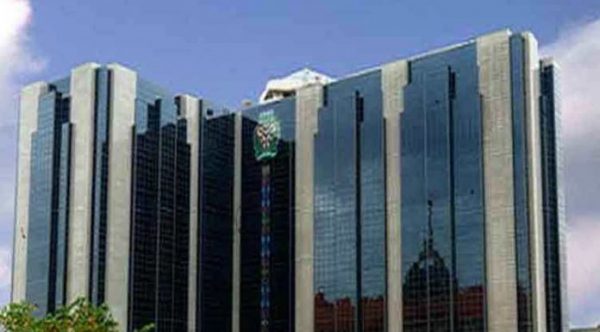Banks’ Deposits With CBN Hit N3.17tn In Nine Months

The Central Bank of Nigeria has recorded N3.17tn deposits from 11 commercial banks in nine months.
Data obtained from the financial statements of the commercial banks listed on the Nigerian Stock Exchange showed that the deposits were made between January and September 2019.
Mandatory reserve deposit is not available for use in a bank’s day-to-day operations.
It represents a percentage of the customers’ deposits and is non-interest bearing.
The amount, which is based on qualified assets, is determined by the CBN from time to time and for the purpose of statement of cash flows and the balance is excluded from the cash and cash equivalents.
From Access Bank Plc, the CBN received N79.63bn while N985.98bn was recorded from Ecobank.
Fidelity Bank Plc, First City Monument Bank Plc and FBN Holdings each recorded N418.30bn, N172.73bn and N697.45bn deposits with the CBN.
Guaranty Trust Bank Plc, Stanbic IBTC and Sterling Bank paid N89.61bn, N319.7bn and N123.16bn to the CBN during the period while N300.59bn, N518.86bn and N9.43bn were received from Union Bank Nigeria Plc, United Bank for Africa Plc and Unity Bank Plc.
The CBN was given a legal backing by the CBN Act No.24 of 1991 to obtain from all banks returns on all credits with a minimum outstanding balance of N100,000 (now N1m and above of principal and interest), for compilation and dissemination by way of status report to any interested party (operators or regulators).
The Act made it mandatory for all financial institutions to render returns to the Credit Risk Management System in respect of all their customers with an aggregate outstanding debit balance of N1m and above.
It also required banks to update the credits monthly, as well as make a status enquiry on any intending borrower to determine their eligibility or otherwise.
Banks are penalized for non-compliance with the provisions of the Act.
The Chief Executive Officer, Cowry Asset Management Limited, Mr. Johnson Chukwu, said the concept of statutory reserve was for the bank to keep a percentage of their income for emergency cases.
He said in the case where a bank ran into liquidity challenge, the reserves were used to settle customers.
He said, “It is supposed to be a risk management tool so that the bank does not lend out all the deposits that it has.
“It is also used to maintain the level of liquidity in the system because if the CBN reduces the ratio, it will reduce the amount the banks have to lend out.”
Chukwu stated that increased money in circulation could lead to a rise in inflation and be used to stimulate or moderate economic growth.
He added that the reserves also moderated the ability of the bank to lend or lower their loanable funds.
The President, Chartered institute of Bankers of Nigeria, Dr Uche Olowu, said the statutory reserves was one of the instruments the CBN used in managing currency in circulation and other monetary regulations.
He noted that banks ought to appreciate the fact that the CBN, depending on the statistics available to it, determines the percentage of the reserves to be kept.
He said, “The CBN tends to control money supply as it is critical to them. It is their prerogative as a regulator to gauge what is optimal and will serve the purpose for the objective they are pursuing at that time.”
He stated that the reserves were only mandatory for commercial banks.







